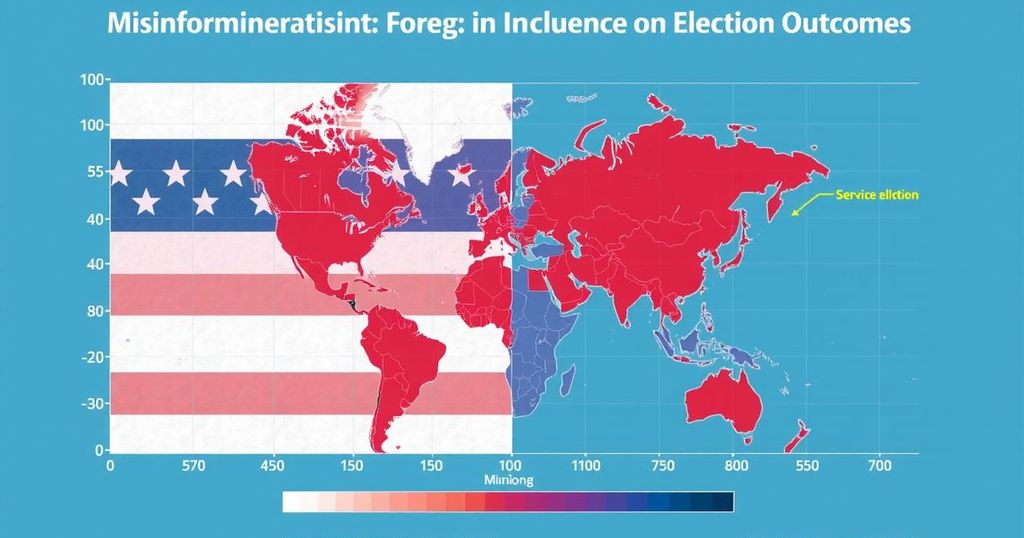Misinformation and Foreign Influence in the 2024 Elections: A Global Overview

The year 2024 witnessed unprecedented voter participation across over 70 countries, revealing vulnerabilities to misinformation and foreign interference in elections. While some studies indicated minimal impact on outcomes, notable incidents such as the annulment of Romania’s election results illuminated the persistent threats to democratic processes globally.
The year 2024 marked a historic period for elections globally, as an estimated 3.7 billion individuals across over 70 countries participated in the democratic process. Despite heightened vigilance against misinformation and foreign interference, the impact of such manipulation on electoral integrity was stark. Major elections occurred in populous democracies like the United States, India, and Indonesia, as well as in autocratic nations including Belarus and Iran, prompting scrutiny into the role of misinformation and AI-driven interference in these processes.
Meta Platforms, Inc. indicated that the anticipated risks associated with generative AI did not manifest significantly during the elections. However, comprehensive studies from the UK-based Centre for Emerging Technology and Security revealed no substantial evidence that foreign-backed misinformation impacted results during European elections or the US presidential election. This narrative shifted in December, when the Romanian Constitutional Court annulled the first-round results of the presidential election due to purported foreign influence.
The following notable incidents in 2024 illustrated the pervasive challenges posed by misinformation and foreign interference. In February, imprisoned former Pakistani Prime Minister Imran Khan employed AI technologies to create a cloned voice speech while rallying support for his political campaign, despite being barred from participation in elections due to legal issues. The European Union, gearing up for the June elections, encountered record-high disinformation levels, with some of this stemming from pro-Kremlin entities attempting to undermine the voting process. Moldova confronted a precarious situation in its EU membership referendum, with allegations of significant Russian financial backing to sway voters against joining the EU. The United States elections were similarly marred, with bomb threats reported in multiple battleground states, identified as likely stemming from Russian-originated email domains. Lastly, Romania’s elections took a surprising turn when a candidate’s rapid rise, aided by a TikTok campaign, led to significant scrutiny and an annulment of results due to suspected state-sponsored interference.
This complex landscape of elections in 2024 highlights the ongoing threats that misinformation and foreign intervention pose to democratic processes across the globe. Despite claims of limited impact, the misadventures in Romania and concerted misinformation efforts during major elections underscore the need for continued vigilance and robust countermeasures. Enhancing the integrity of electoral systems in the face of such challenges remains a crucial priority for democracies worldwide.
The events surrounding the elections of 2024 were set against a backdrop of increased global tension regarding misinformation and foreign interference in democratic processes. In a year termed a ‘super year’ of elections, nations faced unprecedented challenges as they sought to guard against manipulation of information, particularly in elections in populous and influential countries. The involvement of generative AI and the prevalence of disinformation campaigns became central themes as various international bodies conducted analyses to ascertain the extent of influence these factors exerted on electoral outcomes.
In summary, the election year of 2024 raised critical awareness of the need to combat misinformation and foreign influence within electoral systems worldwide. Despite claims from organizations such as Meta that significant impacts were limited, incidents in Romania and various electoral campaigns indicate that the threat of disinformation is far from negligible. As democracy faces these evolving challenges, governments and institutions must remain fortified and proactive in safeguarding electoral integrity.
Original Source: www.euronews.com






